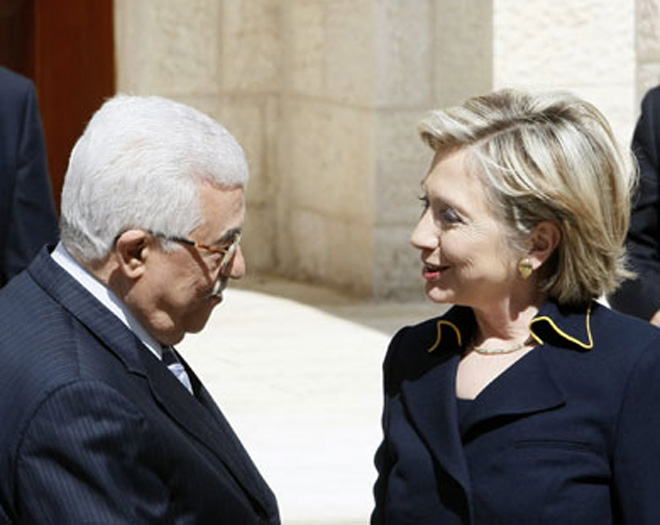Azerbaijan, Baku, Nov. 4 / Trend U.Sadikhova /
Experts see a connection between the U.S. weakening its pressure on Israel during peace talks with the Palestinians and Washington's strategic cooperation with Israel in the Middle East.
"The change in the American foreign policy is the change of initial idealism to a greater acknowledgment to a real policy," Senior Research Fellow at the Begin-Sadat (BESA) Center for Strategic Studies at Bar Ilan University Hillel Frisch wrote Trend in an e-mail.
U.S. President Barack Obama's foreign policy failed while shifting from Iraq to Afghanistan and Pakistan, and the U.S can no longer afford to antagonize an ally like Israel, Frisch believes.
Following her visit to Jerusalem where she met with Israeli prime minister, U.S Secretary of State Hillary Clinton visited Morocco. During the visit, Clinton said, "Israel responded to the requirements of the Americans, Palestinians and Arab world that Israel limit its settlement activity," Al Arabiya reported.
Clinton's statement on resuming the peace talks without preconditions contrasts with the earlier U.S. position whereby Israel would first freeze settlement construction in the West Bank.
Analysts believe that the U.S. failure to influence Israel on the issue of the settlements has affected negatively Washington's foreign policy.
"U.S-Israeli relations are very special. They are seen by many political analysts as a domestic American affair," Muhammad Yaghi Commentator of the Palestinian Al Ayyam newspaper wrote Trend in an e-mail.
Yaghi thinks that pressuring Israel has had negative domestic political consequences for the U.S. and this is why American politicians are no longer trying to apply pressure on Israel.
Clinton's statements that settlements should not be an obstacle in the peace process have caused discontent in the Arab world.
During his meeting with U.S. Special Envoy for Middle East Peace George Mitchell in Amman, Palestinian President Mahmoud Abbas reiterated the position of the Palestinians that peace talks cannot resume before settlement activity is curtailed.
According to Abbas, the Palestinians are not putting forward new preconditions for the talks and instead demand that Israel implement the Road Map, whereby all settlement activities are illegal.
Head of the Arab League Amr Moussa expressed concern that the peace process is on the verge of failure due to the U.S. changing its position.
The most important thing for the U.S is for Israel to agree to enter the talks with the Palestinians, Middle East International Politics Associate Professor at the University of Warwick Nicola Pratt wrote Trend in an e-mail.
"The U.S. administration feels that it has extracted the maximum concessions possible from the Israeli government at this moment," she added.
"Meanwhile, the U.S. does not realize that for ordinary Palestinians the negotiations will be meaningless if they are unable to guarantee justice," Pratt said.
Frisch, who specializes in Middle Eastern security issues, named Turkey's rapprochement with Arab countries and Iran as the major a reason why the U.S. eased its pressure on Israel.
However, experts believe that pressure from the U.S. and Europe could force Abbas to resume negotiations with Israel without requiring a freeze in settlement activity.
"Abbas is very vulnerable to U.S. and European pressure. His authority hinges on their financing his activity and I think he will accept the call for negotiations soon," Yaghi said.
Pratt also believes that the U.S. will succeed by pressuring the Palestinians to resume talks with Israel.
If Abbas agrees to peace talks with Israel without curtailing settlement activity, then, according to Arab media, his political reputation will be damaged on the backdrop of the upcoming January presidential elections in the Palestinian Authority.
Do you have any feedback? Contact our journalist at: [email protected]






